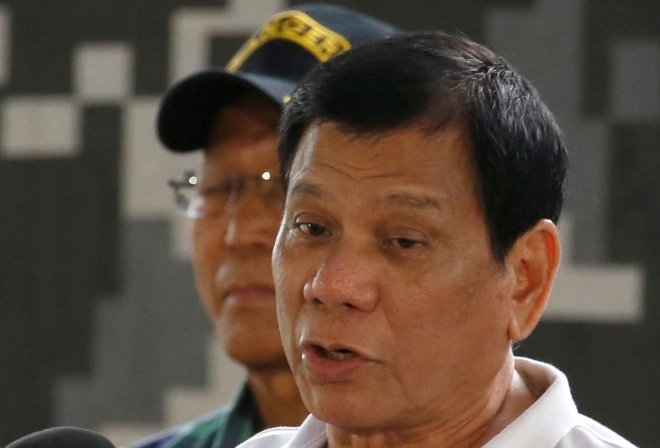
Philippines President Rodrigo Duterte promised to raise the controversial issue of the ruling in South China Sea during his visit to China this week.
According to The Straits Times, the leader also said that he won't surrender any sovereignty or stray away from the July award by The Hague tribunal.
However, people in Philippines are sceptical about the country's maritime sovereignty and are worried that Duterte's desperation to forge close ties with China will hamper it.
"I will not bargain anywhere, we will continue to insist that is ours, the international tribunal decision will be taken up," said the president in a news conference in the city of Davao, as reported by the news agency.
Duterte vowed that the controversial arbitral ruling would be talked about and parameters of the award would be discussed. However, he also said that there would be no "hard imposition" of it.
On July 12, an international tribunal ruling rejected China's vast claims in the South China Sea and said that those claims have no legal basis. But China refused to accept or recognise the tribunal's decision.
On 30 August, Philippine Foreign Minister Perfecto Yasay urged China to accept the ruling saying that Asian giant will be the loser. "We are trying to make China understand especially when the dust settles that unless they respect and recognise the arbitral tribunal, they will be the losers at the end of that day on this matter," Yasay told Reuters.
On 14 September, China lashed back at Philippines saying that their ties are at a turning point.
Chinese Vice Foreign Minister Liu Zhenmin told a delegation from a Philippines foreign affairs committee in Beijing that recently the relations had "sunk to a low edge for reasons everyone knows".
"China hopes the Philippines side can meet China halfway, appropriately handle disputes and push relations back onto the track of dialogue, consultation and friendly cooperation," the minister added.
Both the nations have been involved in a territorial dispute in the South China Sea, along with Brunei, Malaysia, Taiwan and Vietnam.









